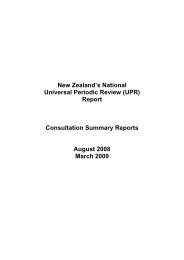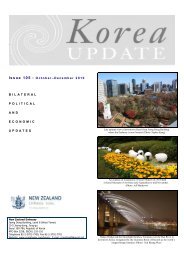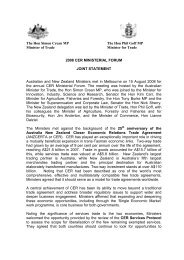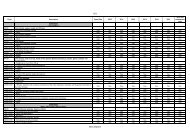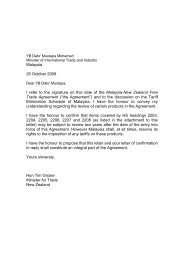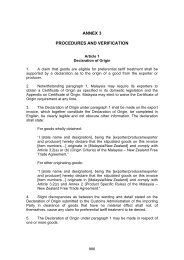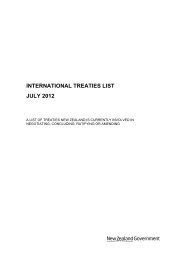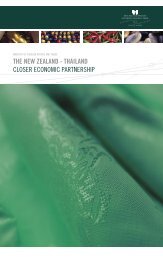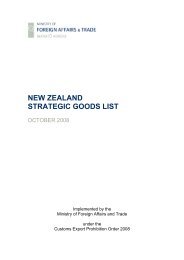Speech by John Adank, NZ
Speech by John Adank, NZ
Speech by John Adank, NZ
Create successful ePaper yourself
Turn your PDF publications into a flip-book with our unique Google optimized e-Paper software.
producers. (And New Zealand has a lot of technological expertise to share in<br />
this sector. We have a long history of agri-business innovation).<br />
� Returning to the ambition of TPP, the TPP Trade Ministers Report commits<br />
each TPP member to establishing a single schedule – a technical term used<br />
to describe legal commitments to open markets to imports – for all the other<br />
TPP partner countries.<br />
� The report also states there will be common rules of origin in TPP that will<br />
make it easier for businesses to take advantage of the agreement as well as<br />
encourage the use of TPP inputs.<br />
� Recent OECD research has shown that 56 per cent of overall goods trade<br />
flows are in intermediate products, i.e. parts or components that are traded<br />
across national borders before becoming part of a final traded product. (A<br />
recent report on US/Mexico trade under NAFTA illustrates this point. The<br />
study, entitled Working Together: Economic Ties between the US and Mexico,<br />
<strong>by</strong> Christopher E Wilson of the Woodrow Wilson International Center for<br />
Scholars, informs us that a full 40% of the content of US imports from Mexico<br />
is actually produced in the United States)<br />
The new nature of trade – Global and Regional Supply Chains<br />
� To be globally competitive, businesses need to lower operating costs and to<br />
be close to their markets and customers. The old concept of selling vertically<br />
integrated products manufactured in one country is outdated. There are huge<br />
productivity gains from this intra-industry trade leading to global supply chains<br />
which now dominate world trade.<br />
� We already have examples of New Zealand firms setting up plants in Mexico<br />
for this very reason, and I’m sure there will be more in the future. Two<br />
companies, Fisher and Paykel Healthcare and Fisher and Paykel Appliances,<br />
have established factories in the north of Mexico, which sell primarily to the<br />
US market. Another company, Avohealth, is currently establishing a plant in<br />
Jalisco, with a Mexican partner, to produce avocado oil for export.<br />
� This increased economic interdependency and complex production and<br />
distribution patterns requires clear and coherent rules for trade and<br />
investment. The TPP negotiation is addressing this challenge.<br />
� This includes examining “behind the border” issues such as regulatory and<br />
non-tariff barriers that pose major hurdles for businesses in the 21 st century.<br />
� Maintaining and enforcing this complex array of regulations is costly and<br />
resource-consuming and increasingly there is a need to harmonise standards<br />
and regulatory requirements to facilitate trade.



